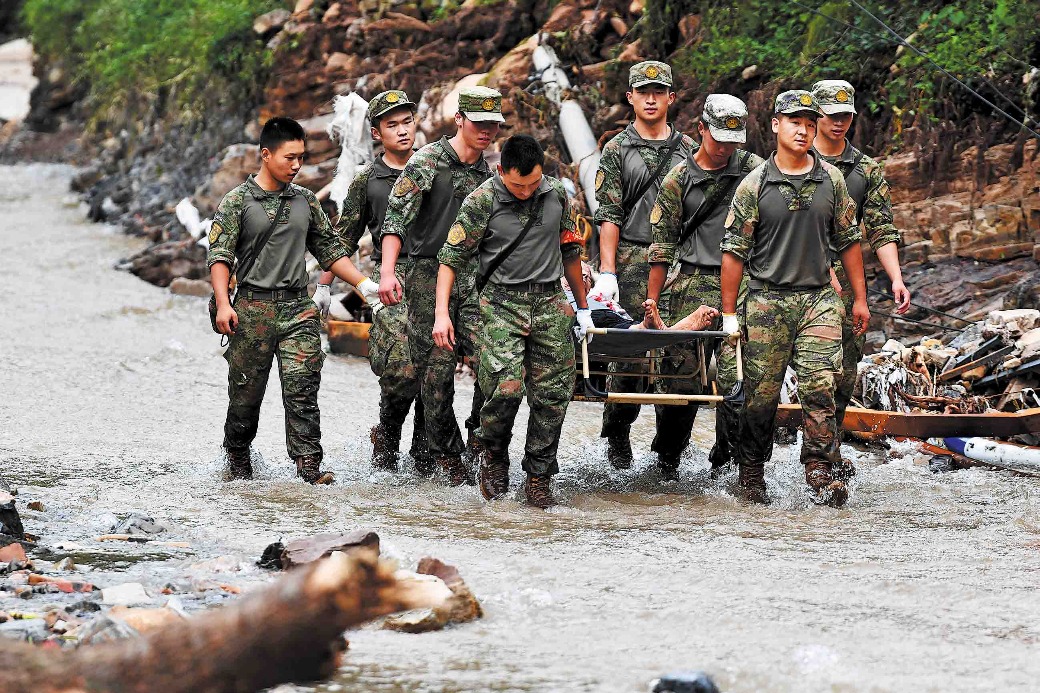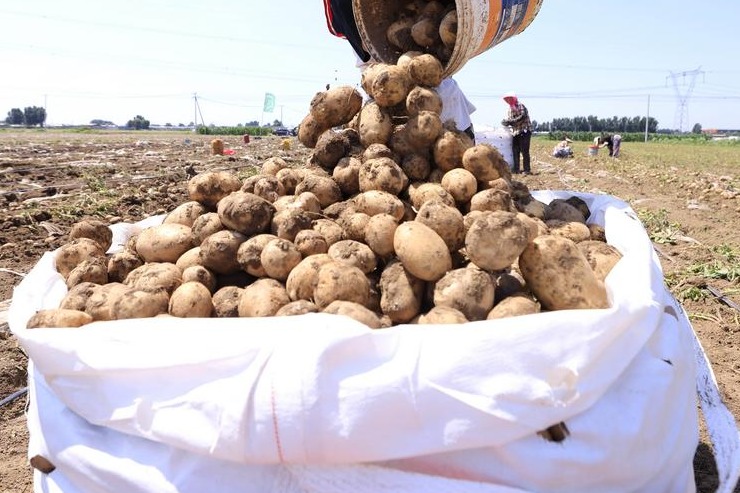Transplant games celebrate perseverance
Nation aims to increase wider acceptance of organ donation among the public

On a clear day in June, lung transplant recipient Xuanxuan stepped up to the start line of his sprint race and prepared to dash, something that would have been unimaginable just a few years earlier.
For the 20-year-old, his transplant surgery has given him a new lease on life. "I love the feeling of the cooling breeze on my skin, and I enjoy letting my mind wander off when I sprint," he said.
Xuanxuan, who is using a pseudonym to protect his privacy, was unable to run or even walk long distances due to pulmonary fibrosis — a condition where damaged and scarred lung tissue causes severe breathing difficulties.
However, thanks to a double lung transplant surgery in late 2019, he's been able to return to school and took this year's national college entrance examination in early June. And in his spare time he likes to hit the track.
Xuanxuan was one of some 400 organ recipients who took part in the eighth China Organ Transplant Games held in Wuhan, Hubei province, on June 11 and 12.
During the two-day event, participants ranging in age from 9 to 78 from 21 provincial-level regions across the country competed in various events, including track and field, table tennis, badminton and tug-of-war.
The transplants they'd received included kidney, liver, lung and bone marrow, according to the China Organ Transplantation Development Foundation, which hosted the event with the Tongji Medical College of Huazhong University of Science and Technology and Tongji Hospital.
"The transplant games are aimed at demonstrating advances in transplantation technologies, encouraging recipients to reengage in social activities and spread awareness about organ donation," said Chen Zhonghua, a professor at Tongji Hospital's Institute of Organ Transplantation and one of the founders of China's first transplant games held in 2004.
Chen said that after successfully receiving a new organ, most transplant patients can resume normal, active lives as perfectly healthy people, except that they need to take immunosuppressant medication for the rest of their lives. "They are also encouraged to exercise regularly and moderately to keep fit."
Xuanxuan ran the first leg in the 4x100m relay, representing a team comprising transplant recipients from the First Affiliated Hospital of Zhengzhou University in Zhengzhou, Henan province.
Though a competition, the event is more about awareness and solidarity rather than raw pace and professionalism.
"I only came here to relax myself, enjoy running and learn more about the field of organ donation. It's given me a second chance at life, so the result doesn't matter to me," he said.
Xuanxuan's condition of constant coughing and breathing difficulties first emerged at age 3 due to an allergic reaction. By the time he reached high school, these symptoms had become his constant companion.
"Before the surgery, it would take me at least 10 minutes to walk from my classroom to the nearest restroom at my high school," he said. "So it's already a miracle that I am standing here."
Coming from the small, inland city of Zhumadian in Henan province, Xuanxuan said that he'd never met another transplant recipient there.
"Some people in my hometown may not even be aware of such a medical procedure," he said. "It's amazing to see so many people here who have traveled a similar path to me."
As Xuanxuan finished his leg of the relay, gasping for air due to exertion, Zhao Gaofeng, head of the First Affiliated Hospital of Zhengzhou University's lung transplantation surgery department, reminded him to slow his pace gradually rather than stopping immediately.
Zhao was the doctor who first introduced the possibility of an organ transplant to Xuanxuan in October 2019 when the boy and his family were running out of treatment options after consulting doctors in Henan and Beijing. Zhao was also one of the lead surgeons who carried out the transplant operation for Xuanxuan.
As the leader of the competing team from his hospital, Zhao said it was touching and uplifting to see recovered patients take part in the activities.
"On the one hand, I think the event can boost their confidence in carrying on with their lives despite their struggles and in most cases, life-threatening battles against diseases," he said. "On the other hand, the event can play a role in expanding awareness about organ transplantation and the medical procedure's profound significance."
While recruiting his team for this year's games, Zhao said one of the potential competitors that came to mind was Lei Yadong, one of the first heart-lung transplant recipients at the hospital.
Lei, from Anyang in Henan, was admitted to the hospital in late October 2020 due to severe pulmonary arterial hypertension caused by Eisenmenger Syndrome, a congenital heart defect that disrupts blood flow in the heart and lungs.
"When I first saw him, each breath tortured him and his life seemed desperate," said Zhao.
On top of the limited availability of suitable organs, Zhao said the heart-lung transplantation surgery itself is an extremely complex and demanding procedure.
"Its level of difficulty could be seen as the pinnacle of a pyramid compared to other transplantation procedures. The probability of success is less than 50 percent," he said.
Fortunately, Lei was paired with a match in less than three months and his operation was successful. He was discharged from the hospital around a month after his surgery.
"We are all surprised by how well he has recovered from such a high-risk surgery," said Zhao. "When I called him a couple of months ago, asking if he was willing to join the event, he agreed instantly."
Lei, 36, teamed up with transplant recipients from different regions to compete in the tug-of-war.
"I look thin, but I am actually very strong," said Lei as he proudly rolled up a sleeve to show his bicep. "I was placed in the second last position, in front of the anchor of a pretty brawny guy. It was great fun."
Lei now works full-time on a construction site as a welder.
"I took a gamble when getting on the operating table three-and-a-half years ago, and it paid off because of my conviction, the kindness of the donor and the efforts of all the medical staff at the hospital," he said.
Lei said that participating in the games shows how organ recipients can lead a full and meaningful life.
"At work, I'm often hung high in the air to weld and fix metal on bridges and high-rises," he said. "Most people might find the job intimidating, but as a transplant recipient, I am able to nail it, and this fact makes me very proud and motivates me to carry on and work harder each day."
Both Xuanxuan and Lei are among the fortunate to have been matched with a donor in a relatively short period of time. However, for many, the wait is too long.
Each year, only about 20,000 out of the 300,000 patients in China with late-stage organ failure waiting for a transplant receive an organ.
According to Chen Zhishui, head of Tongji Hospital's Institute of Organ Transplantation, only about one in 6.7 patients waiting for a liver transplant can wait long enough to receive a donation.
Organ donation, as in many countries, can be a sensitive subject in China, with some believing for spiritual reasons that a body must remain whole. However, attitudes are changing.
Since 2015, organ donations and transplant surgeries have been on the rise. Last year, China recorded 10,778 organ donations, including 6,454 posthumous donations, a 14.7 percent increase from the previous year. The country also carried out nearly 24,000 organ transplant surgeries, up by 18.1 percent from the previous year.
"China's organ transplantation skills are among the most advanced in the world, but a shortage of organs remains a serious challenge," Chen said.
"In recent years, we have dedicated concerted efforts to promote organ donation registrations, enhancing the use of marginal donated organs and accelerating research into xenotransplantation and artificial organs," he said.
According to a guideline released by the National Health Commission and 13 other government departments in May, the country aims to achieve an annual growth rate of at least 10 percent in terms of the number of voluntary registrations in the next five years.
The nation will also strive to raise the organ donation rate to eight per million people within five years. The rate stood at 4.6 last year. For developed nations such as the United States and countries in Europe, the donation rate ranges from 30 to 40 per million people.
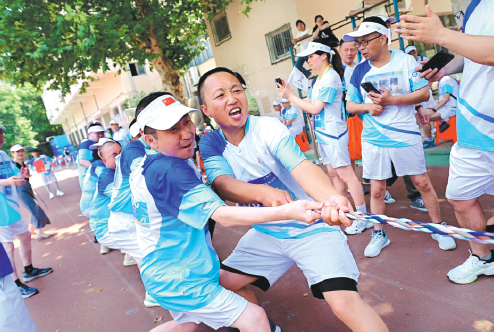
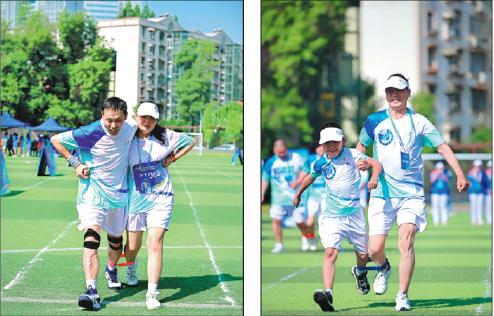
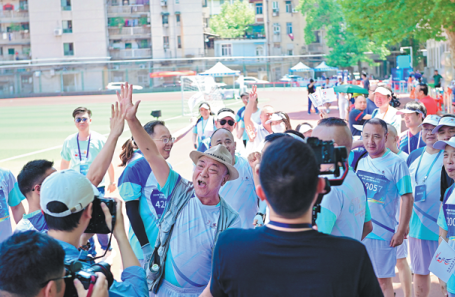
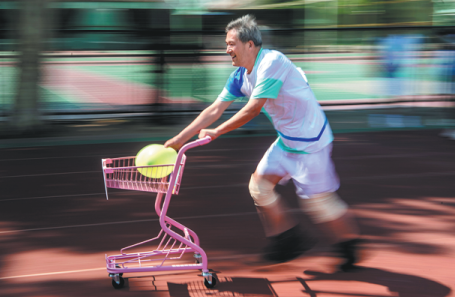
Today's Top News
- Unified national market a new growth launchpad
- US deal a structural challenge for Japan
- Industrial prowess of China a subject of serious study
- US new tariffs 'unfair': Experts
- NDRC recalibrating steps to drive growth, boost demand
- Wartime hero's legacy fortifies Sino-UK bond



















